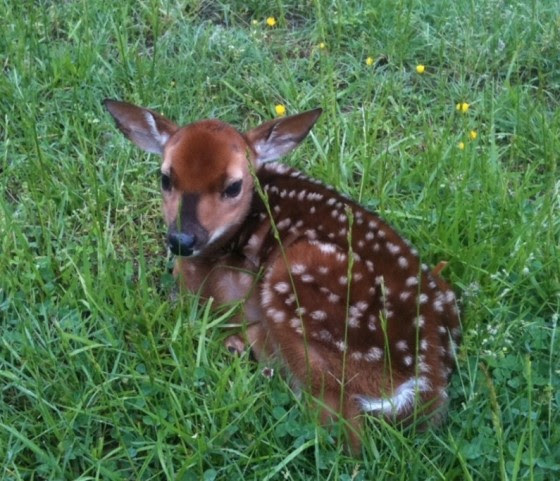Don’t mess with fawns

The rehabilitation of deer fawns in Fairfax County will be prohibited, as of May 1, the Fairfax County Police Department announced April 20.
This rule, administered and enforced by the Virginia Department of Wildlife Resources, is being implemented to reduce the transmission and spread of Chronic Wasting Disease (CWD) among deer populations.
CWD is a slow, progressive neurologic disease affecting white-tailed deer, mule deer, elk, and moose. The disease is always fatal to affected animals. There is no vaccine to prevent infection and no treatment.
This past deer season, CWD was confirmed in a deer harvested in Fairfax County for the first time. As a result, the county has been added to a CWD Disease Management Area, which calls for regulatory actions to limit the spread of the disease.
Rehabilitation activities are being prohibited because they could unknowingly result in the release of infected animals.
“Given that fawns can no longer be rehabilitated in Fairfax County, it is especially important to make every effort possible to leave healthy fawns where they are found to have the best chance of survival,” the FCPD states.
Most fawns are born in May and June. Newborn fawns are often found on lawns, in flower beds, gardens, bushes, or areas of tall grass near homes.
People who encounter fawns motionless and without their mother often mistakenly assume they are orphaned or abandoned. In almost all cases, their mothers are nearby and are coming back, so they need to be left alone. Female deer typically leave their fawns bedded down for extended periods of time while they are away foraging to avoid leading predators to their young.
Fawns will not try to run away when they are approached. Does will return several times a day for a brief visit to move or feed their young. If there are people around, the mother might not return.
Residents are advised not to feed, handle, or disturb fawns.
“A fawn’s best chance of survival is to remain in the wild under the natural care of its mother,” the FCPD states. “Now, more than ever, we ask residents to leave fawns alone unless their health is truly compromised, as euthanasia would be the only option if a fawn is removed from the wild and cannot be reunited with its mother.”
If residents come upon a fawn showing obvious signs of injury or distress, they should contact the Fairfax County Animal Protection Police through the police non-emergency line, 703-691-2131.
